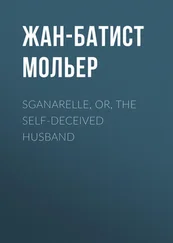AAVV - Constructing the Self
Здесь есть возможность читать онлайн «AAVV - Constructing the Self» — ознакомительный отрывок электронной книги совершенно бесплатно, а после прочтения отрывка купить полную версию. В некоторых случаях можно слушать аудио, скачать через торрент в формате fb2 и присутствует краткое содержание. Жанр: unrecognised, на английском языке. Описание произведения, (предисловие) а так же отзывы посетителей доступны на портале библиотеки ЛибКат.
- Название:Constructing the Self
- Автор:
- Жанр:
- Год:неизвестен
- ISBN:нет данных
- Рейтинг книги:3 / 5. Голосов: 1
-
Избранное:Добавить в избранное
- Отзывы:
-
Ваша оценка:
- 60
- 1
- 2
- 3
- 4
- 5
Constructing the Self: краткое содержание, описание и аннотация
Предлагаем к чтению аннотацию, описание, краткое содержание или предисловие (зависит от того, что написал сам автор книги «Constructing the Self»). Если вы не нашли необходимую информацию о книге — напишите в комментариях, мы постараемся отыскать её.
Constructing the Self — читать онлайн ознакомительный отрывок
Ниже представлен текст книги, разбитый по страницам. Система сохранения места последней прочитанной страницы, позволяет с удобством читать онлайн бесплатно книгу «Constructing the Self», без необходимости каждый раз заново искать на чём Вы остановились. Поставьте закладку, и сможете в любой момент перейти на страницу, на которой закончили чтение.
Интервал:
Закладка:
It is striking that neither Hurston nor Wright uses southern territory for substantial political commentary, although their texts are not completely devoid of such commentary. Certainly they value the landscape and the folk traditions that surrounded them as they grew up, but southernness in and of itself, or any concentrated desire to change southernness, does not appear in their texts. Neither expresses a clear cut political agenda that would be comparable to agitating for the abolition of slavery. For Wright and Hurston, who found themselves more a part of a region than part of a nation, penning their narratives meant, to some extent, leaving their region to join the nation, the very nation that Douglass and Jacobs found so problematic.
Still, there are narrators who are thoroughly engaged in and called for change on southern territory. This is especially the case with narrators during the Civil Rights era of the 1950s and 1960s. Whether it is Alice Walker challenging Mississippi laws in her life or in her fiction, or Anne Moody in Coming of Age in Mississippi (1968), southern territory for some African American life narrators means embracing activism for the remainder of their lives. In essays as well as in Meridian (1970), Walker expresses her commitment to social activism. She deliberately married a Jewish man and moved to Mississippi in defiance of the anti-miscegenation laws in that state. In her essay “Choice: A Tribute to Dr. Martin Luther King, Jr.,” she recounts how her social consciousness was developed in part as a result of hearing her mother pray for Dr. King’s safety.
Moody begins her narrative in pretty mundane fashion, at times testing the reader’s patience with her repeated recitations of her family’s poverty-stricken circumstances in rural Mississippi. In fact, the narrative begins in a kind of “ in medias res ,” for readers are only aware that they are reading about Mississippi from the title of the volume. It is many pages before there are sufficient geographical markers within the text to locate the physical territory. Then, after a painfully depressing, humorless childhood and middle school existence, Moody begins high school during the year in which Emmett Till is killed. Though she has been aware of inequity and racial issues before, her learning about Till’s death sparks an awakening that defines her activism throughout her college years. After Till’s death, Moody’s political activism dominates the narrative, whether it is leading a protest on her college campus about maggot-infested grits, sitting in at lunch counters or bus stations in Jackson, Mississippi, registering voters in Canton, Mississippi, or traveling to Washington, D.C. for the famous March in August of 1963. Her early life certainly intersects with those of Wright and Hurston in that she paints herself as the only person in her town of Centreville, Mississippi, who is sensitive enough or intelligent enough to be angry about and resistant to racist practices. However, her deviation from Wright and Hurston is dramatic from the moment she leaves her hometown. She engages in events that enable her to produce a classic African American political life narrative.
A classic African American narrative at the end of the Civil Rights era, however, is less activist-oriented than it serves to chronicle the life of a larger-than-life figure. I refer to Maya Angelou’s I Know Why the Caged Bird Sings (1970). While its most engaging sections are located on southern territory, it nonetheless depicts Angelou in St. Louis, San Francisco, and part of Mexico. Caged Bird is the first in a serial life narrative from Angelou that covers several volumes. It engages as much for its creation of a legendary figure as it does in portraying the folk culture of rural Arkansas that Angelou credits with being the primary shaping force in her life. Again, the individual trajectory of the narrative takes precedence over the communal trajectory, though Angelou does record several instances of southern racism that affected the entire community in which she lived, such as a white doctor’s refusal to pull her aching tooth because, he avers, he would rather put his hand into a dog’s mouth than into the mouth of a Negro. Angelou went on from such misadventures to become active in the Civil Rights movement, and she actually rubbed elbows with Martin Luther King Jr., but personality is the major thing that dominates Caged Bird , not communal issues.
The South as a territory of narrative composition, therefore, is at times influential and at other times merely a backdrop to the ego that pictures itself on that soil. While region and landscape certainly tie into how lives get formed in the South, there are also other factors that shape narratives. I am thinking specifically of natural disasters and how they define the composition of life narratives. More specifically, I am thinking about Hurricane Katrina and the devastating impact it had upon lives in Louisiana, Mississippi, and the broader area of the Gulf Coast. For years after the Hurricane did its unprecedented damage in 2005, narrators across the South were recounting their experiences during that time period. Professors from various universities, professional writers, and just plain folks penned their responses to the devastation that Katrina heaped upon their lives. Dillard professor and well-known African American literary scholar Jerry W. Ward Jr. published The Katrina Papers: A Journey of Trauma and Recovery (2008), a memoir that contains a mixture of theory and artistic forms, including poetry. Joanne V. Gabbin, founder of the Furious Flower Poetry Center at James Madison University in Harrisonburg, Virginia, sponsored a write-in of sorts, in which anyone affected by Katrina could compose a poem about the experience or compose a prose narrative. Gabbin also edited Mourning Katrina: A Poetic Response to Tragedy in 2009. Katrina has arguably been the most written about natural disaster that ever occurred on southern United States soil.
Katrina also made her way into movies and documentaries, especially with Spike Lee, as well as into fiction. And I am thinking specifically of Jesmyn Ward’s novel, Salvage the Bones , which won the National Book Award for Fiction in 2011, and Mat Johnson’s Dark Rain: A New Orleans Story (2010), which is a graphic novel about the Katrina disaster. Jesmyn Ward depicts a family’s wait for the arrival of the Hurricane as well as the destruction that they witness afterwards. The natural events serve as the backdrop against which a poverty-stricken family, whose primary pastime is dogfighting and whose 15-year old narrator is pregnant, lives out its miserable existence, an existence made even more miserable by the arrival of the hurricane. Katrina has thus entered into the linguistic heritage of the South in all forms of writing, from memoir to poetry to essay to graphic novel to traditional fiction.
One of the most fascinating accounts of the hurricane’s aftermath, however, is Pulitzer-Prize winning poet Natasha Trethewey’s Beyond Katrina: A Meditation on the Mississippi Gulf Coast , published in 2010. What is striking about this memoir is that it is only barely about Trethewey. It is, rather, a meditation on nature, kinfolks, space, and place. The place specifically is Gulfport, Mississippi, and the failed efforts at restoration in a space that Trethewey and her only brother Joe know as their ancestral home. The book is also about that brother, who, unable to find work or any legal means of making a living after the destruction that Katrina caused, ends up selling drugs and earns a prison sentence as a result. Beyond Katrina , therefore, is not about birth and growing up; it is about people living with and trying to survive destruction—not only natural destruction but the destructive effects of drugs on Joe’s life. The character, so to speak, in the text is the storm itself—together with its lingering effects. Racism is not the primary villain; nature is—with human stupidity being second in villainy. The construction of the narrative is intriguing in its distancing of the narrator herself from the major focus of the text, which means that this is a memoir that has no precedent for what it labels itself or for what it hopes to achieve. Self-erasure for Trethewey becomes the device through which she privileges destruction and attempts to recover from destruction. It matches the erasure that she notes in terms of destruction of the landscape as well as the erasure that ensues as time passes and memories of the disaster falter or disappear altogether. Hurricane Katrina constructs a narrative, and there are narratives about Katrina and the landscape on which she inscribes her signature. Trethewey’s meditations finally enter a realm of imaginative creation that uses writing to comment on the writing that nature did on the geography as well as upon human lives on the Mississippi Gulf Coast.
Читать дальшеИнтервал:
Закладка:
Похожие книги на «Constructing the Self»
Представляем Вашему вниманию похожие книги на «Constructing the Self» списком для выбора. Мы отобрали схожую по названию и смыслу литературу в надежде предоставить читателям больше вариантов отыскать новые, интересные, ещё непрочитанные произведения.
Обсуждение, отзывы о книге «Constructing the Self» и просто собственные мнения читателей. Оставьте ваши комментарии, напишите, что Вы думаете о произведении, его смысле или главных героях. Укажите что конкретно понравилось, а что нет, и почему Вы так считаете.












